afterLoad (456.41KB) (441μs)
afterInitialise (1.28MB) (72.52ms)
afterRoute (840.02KB) (31.3ms)
beforeRenderComponent com_tags (20.62KB) (234μs)
afterRenderComponent com_tags (3.99MB) (601ms)
afterDispatch (27.5KB) (9.8ms)
beforeRenderRawModule mod_articles_category (READ MORE...) (423.86KB) (19.38ms)
Before Access::preloadComponents (all components) (50.9KB) (5ms)
After Access::preloadComponents (all components) (127.55KB) (1.75ms)
Before Access::getAssetRules (id:8 name:com_content) (840B) (27μs)
After Access::getAssetRules (id:8 name:com_content) (7.05KB) (40μs)
afterRenderRawModule mod_articles_category (READ MORE...) (15.04KB) (129ms)
beforeRenderRawModule mod_custom (BOOST YOUR IMMUNE DEFENSE) (6.45KB) (29μs)
afterRenderRawModule mod_custom (BOOST YOUR IMMUNE DEFENSE) (3.8KB) (210μs)
beforeRenderRawModule mod_tags_popular (Search) (2.36KB) (23μs)
afterRenderRawModule mod_tags_popular (Search) (44.95KB) (106ms)
beforeRenderRawModule mod_custom (Get additionel and more detailed knowledge ) (816B) (27μs)
afterRenderRawModule mod_custom (Get additionel and more detailed knowledge ) (1.55KB) (45μs)
beforeRenderRawModule mod_custom (Overview of vitamins, minerals, and essential fatty acids) (768B) (11μs)
afterRenderRawModule mod_custom (Overview of vitamins, minerals, and essential fatty acids) (960B) (20μs)
beforeRenderRawModule mod_custom (Q10 goes by many names) (608B) (9μs)
afterRenderRawModule mod_custom (Q10 goes by many names) (928B) (17μs)
beforeRenderRawModule mod_custom (Check this before you buy a Q10 product) (752B) (7μs)
afterRenderRawModule mod_custom (Check this before you buy a Q10 product) (944B) (17μs)
beforeRenderRawModule mod_custom (Are you taking supplements) (736B) (8μs)
afterRenderRawModule mod_custom (Are you taking supplements) (1.03KB) (15μs)
beforeRenderRawModule mod_custom (Weight loss that works) (736B) (8μs)
afterRenderRawModule mod_custom (Weight loss that works) (1.03KB) (16μs)
beforeRenderRawModule mod_custom (Antiaging) (720B) (7μs)
afterRenderRawModule mod_custom (Antiaging) (912B) (16μs)
beforeRenderRawModule mod_menu (Are you getting enough vitamins and minerals?) (2.5KB) (10μs)
afterRenderRawModule mod_menu (Are you getting enough vitamins and minerals?) (22.39KB) (2.72ms)
beforeRenderRawModule mod_menu (The key to increased well-being) (736B) (28μs)
afterRenderRawModule mod_menu (The key to increased well-being) (17.83KB) (288μs)
beforeRenderRawModule mod_menu (Did you know.....) (720B) (17μs)
afterRenderRawModule mod_menu (Did you know.....) (25.52KB) (265μs)
beforeRenderRawModule mod_custom (Useful Links) (1.06KB) (13μs)
afterRenderRawModule mod_custom (Useful Links) (1.02KB) (29μs)
beforeRenderRawModule mod_custom (Chronic fatigue tied Alan to his bed but Q10 capsules saved him:) (244.28KB) (8.99ms)
afterRenderRawModule mod_custom (Chronic fatigue tied Alan to his bed but Q10 capsules saved him:) (1.06KB) (41μs)
beforeRenderModule mod_custom (Chronic fatigue tied Alan to his bed but Q10 capsules saved him:) (768B) (5μs)
afterRenderModule mod_custom (Chronic fatigue tied Alan to his bed but Q10 capsules saved him:) (1.3KB) (49μs)
beforeRenderRawModule mod_custom (Cholesterol-lowering without side effects:) (368B) (12μs)
afterRenderRawModule mod_custom (Cholesterol-lowering without side effects:) (1.06KB) (20μs)
beforeRenderModule mod_custom (Cholesterol-lowering without side effects:) (752B) (1μs)
afterRenderModule mod_custom (Cholesterol-lowering without side effects:) (1.28KB) (26μs)
beforeRenderModule mod_articles_category (READ MORE...) (20.82KB) (2.68ms)
afterRenderModule mod_articles_category (READ MORE...) (1.25KB) (46μs)
beforeRenderModule mod_custom (BOOST YOUR IMMUNE DEFENSE) (6.81KB) (13μs)
afterRenderModule mod_custom (BOOST YOUR IMMUNE DEFENSE) (1.28KB) (23μs)
beforeRenderModule mod_tags_popular (Search) (1.98KB) (10μs)
afterRenderModule mod_tags_popular (Search) (1.27KB) (20μs)
beforeRenderModule mod_custom (Get additionel and more detailed knowledge ) (1.17KB) (9μs)
afterRenderModule mod_custom (Get additionel and more detailed knowledge ) (1.3KB) (19μs)
beforeRenderModule mod_custom (Overview of vitamins, minerals, and essential fatty acids) (384B) (8μs)
afterRenderModule mod_custom (Overview of vitamins, minerals, and essential fatty acids) (1.31KB) (18μs)
beforeRenderModule mod_custom (Q10 goes by many names) (208B) (8μs)
afterRenderModule mod_custom (Q10 goes by many names) (1.27KB) (18μs)
beforeRenderModule mod_custom (Check this before you buy a Q10 product) (352B) (8μs)
afterRenderModule mod_custom (Check this before you buy a Q10 product) (1.28KB) (17μs)
beforeRenderModule mod_custom (Are you taking supplements) (352B) (8μs)
afterRenderModule mod_custom (Are you taking supplements) (1.28KB) (18μs)
beforeRenderModule mod_custom (Weight loss that works) (336B) (8μs)
afterRenderModule mod_custom (Weight loss that works) (1.27KB) (17μs)
beforeRenderModule mod_custom (Antiaging) (336B) (8μs)
afterRenderModule mod_custom (Antiaging) (3.77KB) (19μs)
beforeRenderModule mod_menu (Are you getting enough vitamins and minerals?) (2.13KB) (10μs)
afterRenderModule mod_menu (Are you getting enough vitamins and minerals?) (1.3KB) (18μs)
beforeRenderModule mod_menu (The key to increased well-being) (352B) (17μs)
afterRenderModule mod_menu (The key to increased well-being) (1.28KB) (20μs)
beforeRenderModule mod_menu (Did you know.....) (336B) (9μs)
afterRenderModule mod_menu (Did you know.....) (1.27KB) (24μs)
beforeRenderModule mod_custom (Useful Links) (1.44KB) (8μs)
afterRenderModule mod_custom (Useful Links) (1.27KB) (18μs)
beforeRenderRawModule mod_menu (Main Menu - English) (29.14KB) (5.36ms)
afterRenderRawModule mod_menu (Main Menu - English) (186.95KB) (6.3ms)
beforeRenderModule mod_menu (Main Menu - English) (720B) (5μs)
afterRenderModule mod_menu (Main Menu - English) (4.86KB) (51μs)
beforeRenderRawModule mod_languages (Sprogskift) (3.94KB) (17μs)
afterRenderRawModule mod_languages (Sprogskift) (22.55KB) (4.3ms)
beforeRenderModule mod_languages (Sprogskift) (720B) (3μs)
afterRenderModule mod_languages (Sprogskift) (5.31KB) (19μs)
beforeRenderRawModule mod_finder () (6.34KB) (9μs)
afterRenderRawModule mod_finder () (128.59KB) (5.7ms)
beforeRenderModule mod_finder () (704B) (5μs)
afterRenderModule mod_finder () (3.29KB) (31μs)
beforeRenderRawModule mod_custom () (6.62KB) (275μs)
afterRenderRawModule mod_custom () (22.64KB) (4.57ms)
beforeRenderModule mod_custom () (704B) (5μs)
afterRenderModule mod_custom () (1.23KB) (44μs)
beforeRenderRawModule mod_menu (Main Menu - English) (5.07KB) (94μs)
afterRenderRawModule mod_menu (Main Menu - English) (6.3KB) (686μs)
beforeRenderModule mod_menu (Main Menu - English) (720B) (3μs)
afterRenderModule mod_menu (Main Menu - English) (1.25KB) (39μs)
beforeRenderRawModule mod_languages (Sprogskift Mobil) (912B) (16μs)
afterRenderRawModule mod_languages (Sprogskift Mobil) (3.89KB) (3.58ms)
beforeRenderModule mod_languages (Sprogskift Mobil) (720B) (5μs)
afterRenderModule mod_languages (Sprogskift Mobil) (1.27KB) (31μs)
beforeRenderRawModule mod_finder () (2.3KB) (236μs)
afterRenderRawModule mod_finder () (6.29KB) (1.99ms)
beforeRenderModule mod_finder () (704B) (5μs)
afterRenderModule mod_finder () (1.23KB) (47μs)
beforeRenderRawModule mod_custom () (8.66KB) (728μs)
afterRenderRawModule mod_custom () (904B) (941μs)
beforeRenderModule mod_custom () (704B) (5μs)
afterRenderModule mod_custom () (2.43KB) (30μs)
beforeRenderRawModule mod_custom () (688B) (94μs)
afterRenderRawModule mod_custom () (896B) (816μs)
beforeRenderModule mod_custom () (704B) (4μs)
afterRenderModule mod_custom () (2.71KB) (346μs)
afterRender (832.13KB) (34.93ms)
| 1 x afterRenderComponent com_tags (3.99MB) (56.39%) | 600.95ms |
| 1 x afterRenderRawModule mod_articles_category (READ MORE...) (15.04KB) (12.12%) | 129.20ms |
| 1 x afterRenderRawModule mod_tags_popular (Search) (44.95KB) (9.95%) | 106.05ms |
| 1 x afterInitialise (1.28MB) (6.8%) | 72.52ms |
| 1 x afterRender (832.13KB) (3.28%) | 34.93ms |
| 1 x afterRoute (840.02KB) (2.94%) | 31.30ms |
| 1 x beforeRenderRawModule mod_articles_category (READ MORE...) (423.86KB) (1.82%) | 19.38ms |
| 1 x afterDispatch (27.5KB) (0.92%) | 9.80ms |
| 1 x beforeRenderRawModule mod_custom (Chronic fatigue tied Alan to his bed but Q10 capsules saved him:) (244.28KB) (0.84%) | 8.99ms |
| 1 x afterRenderRawModule mod_menu (Main Menu - English) (186.95KB) (0.59%) | 6.30ms |
| 1 x afterRenderRawModule mod_finder () (128.59KB) (0.53%) | 5.70ms |
| 1 x beforeRenderRawModule mod_menu (Main Menu - English) (29.14KB) (0.5%) | 5.36ms |
| 1 x Before Access::preloadComponents (all components) (50.9KB) (0.47%) | 5.00ms |
| 1 x afterRenderRawModule mod_custom () (22.64KB) (0.43%) | 4.57ms |
| 1 x afterRenderRawModule mod_languages (Sprogskift) (22.55KB) (0.4%) | 4.30ms |
| 1 x afterRenderRawModule mod_languages (Sprogskift Mobil) (3.89KB) (0.34%) | 3.58ms |
| 1 x afterRenderRawModule mod_menu (Are you getting enough vitamins and minerals?) (22.39KB) (0.26%) | 2.72ms |
| 1 x beforeRenderModule mod_articles_category (READ MORE...) (20.82KB) (0.25%) | 2.68ms |
| 1 x afterRenderRawModule mod_finder () (6.29KB) (0.19%) | 1.99ms |
| 1 x After Access::preloadComponents (all components) (127.55KB) (0.16%) | 1.75ms |
| 1 x afterRenderRawModule mod_custom () (904B) (0.09%) | 941μs |
| 1 x afterRenderRawModule mod_custom () (896B) (0.08%) | 816μs |
| 1 x beforeRenderRawModule mod_custom () (8.66KB) (0.07%) | 728μs |
| 1 x afterRenderRawModule mod_menu (Main Menu - English) (6.3KB) (0.06%) | 686μs |
| 1 x afterLoad (456.41KB) (0.04%) | 441μs |
| 1 x afterRenderModule mod_custom () (2.71KB) (0.03%) | 346μs |
| 1 x afterRenderRawModule mod_menu (The key to increased well-being) (17.83KB) (0.03%) | 288μs |
| 1 x beforeRenderRawModule mod_custom () (6.62KB) (0.03%) | 275μs |
| 1 x afterRenderRawModule mod_menu (Did you know.....) (25.52KB) (0.02%) | 265μs |
| 1 x beforeRenderRawModule mod_finder () (2.3KB) (0.02%) | 236μs |
| 1 x beforeRenderComponent com_tags (20.62KB) (0.02%) | 234μs |
| 1 x afterRenderRawModule mod_custom (BOOST YOUR IMMUNE DEFENSE) (3.8KB) (0.02%) | 210μs |
| 1 x beforeRenderRawModule mod_menu (Main Menu - English) (5.07KB) (0.01%) | 94μs |
| 1 x beforeRenderRawModule mod_custom () (688B) (0.01%) | 94μs |
| 1 x afterRenderModule mod_menu (Main Menu - English) (4.86KB) (0%) | 51μs |
| 1 x afterRenderModule mod_custom (Chronic fatigue tied Alan to his bed but Q10 capsules saved him:) (1.3KB) (0%) | 49μs |
| 1 x afterRenderModule mod_finder () (1.23KB) (0%) | 47μs |
| 1 x afterRenderModule mod_articles_category (READ MORE...) (1.25KB) (0%) | 46μs |
| 1 x afterRenderRawModule mod_custom (Get additionel and more detailed knowledge ) (1.55KB) (0%) | 45μs |
| 1 x afterRenderModule mod_custom () (1.23KB) (0%) | 44μs |
| 1 x afterRenderRawModule mod_custom (Chronic fatigue tied Alan to his bed but Q10 capsules saved him:) (1.06KB) (0%) | 41μs |
| 1 x After Access::getAssetRules (id:8 name:com_content) (7.05KB) (0%) | 40μs |
| 1 x afterRenderModule mod_menu (Main Menu - English) (1.25KB) (0%) | 39μs |
| 1 x afterRenderModule mod_finder () (3.29KB) (0%) | 31μs |
| 1 x afterRenderModule mod_languages (Sprogskift Mobil) (1.27KB) (0%) | 31μs |
| 1 x afterRenderModule mod_custom () (2.43KB) (0%) | 30μs |
| 1 x beforeRenderRawModule mod_custom (BOOST YOUR IMMUNE DEFENSE) (6.45KB) (0%) | 29μs |
| 1 x afterRenderRawModule mod_custom (Useful Links) (1.02KB) (0%) | 29μs |
| 1 x beforeRenderRawModule mod_menu (The key to increased well-being) (736B) (0%) | 28μs |
| 1 x beforeRenderRawModule mod_custom (Get additionel and more detailed knowledge ) (816B) (0%) | 27μs |
| 1 x Before Access::getAssetRules (id:8 name:com_content) (840B) (0%) | 27μs |
| 1 x afterRenderModule mod_custom (Cholesterol-lowering without side effects:) (1.28KB) (0%) | 26μs |
| 1 x afterRenderModule mod_menu (Did you know.....) (1.27KB) (0%) | 24μs |
| 1 x beforeRenderRawModule mod_tags_popular (Search) (2.36KB) (0%) | 23μs |
| 1 x afterRenderModule mod_custom (BOOST YOUR IMMUNE DEFENSE) (1.28KB) (0%) | 23μs |
| 1 x afterRenderRawModule mod_custom (Overview of vitamins, minerals, and essential fatty acids) (960B) (0%) | 20μs |
| 1 x afterRenderRawModule mod_custom (Cholesterol-lowering without side effects:) (1.06KB) (0%) | 20μs |
| 1 x afterRenderModule mod_tags_popular (Search) (1.27KB) (0%) | 20μs |
| 1 x afterRenderModule mod_menu (The key to increased well-being) (1.28KB) (0%) | 20μs |
| 1 x afterRenderModule mod_custom (Get additionel and more detailed knowledge ) (1.3KB) (0%) | 19μs |
| 1 x afterRenderModule mod_custom (Antiaging) (3.77KB) (0%) | 19μs |
| 1 x afterRenderModule mod_languages (Sprogskift) (5.31KB) (0%) | 19μs |
| 1 x afterRenderModule mod_menu (Are you getting enough vitamins and minerals?) (1.3KB) (0%) | 18μs |
| 1 x afterRenderModule mod_custom (Overview of vitamins, minerals, and essential fatty acids) (1.31KB) (0%) | 18μs |
| 1 x afterRenderModule mod_custom (Q10 goes by many names) (1.27KB) (0%) | 18μs |
| 1 x afterRenderModule mod_custom (Are you taking supplements) (1.28KB) (0%) | 18μs |
| 1 x afterRenderModule mod_custom (Useful Links) (1.27KB) (0%) | 18μs |
| 1 x afterRenderRawModule mod_custom (Q10 goes by many names) (928B) (0%) | 17μs |
| 1 x afterRenderRawModule mod_custom (Check this before you buy a Q10 product) (944B) (0%) | 17μs |
| 1 x beforeRenderRawModule mod_menu (Did you know.....) (720B) (0%) | 17μs |
| 1 x afterRenderModule mod_custom (Check this before you buy a Q10 product) (1.28KB) (0%) | 17μs |
| 1 x afterRenderModule mod_custom (Weight loss that works) (1.27KB) (0%) | 17μs |
| 1 x beforeRenderModule mod_menu (The key to increased well-being) (352B) (0%) | 17μs |
| 1 x beforeRenderRawModule mod_languages (Sprogskift) (3.94KB) (0%) | 17μs |
| 1 x afterRenderRawModule mod_custom (Antiaging) (912B) (0%) | 16μs |
| 1 x afterRenderRawModule mod_custom (Weight loss that works) (1.03KB) (0%) | 16μs |
| 1 x beforeRenderRawModule mod_languages (Sprogskift Mobil) (912B) (0%) | 16μs |
| 1 x afterRenderRawModule mod_custom (Are you taking supplements) (1.03KB) (0%) | 15μs |
| 3 x beforeRenderModule mod_custom () (704B) (0%) | 14μs |
| 1 x beforeRenderRawModule mod_custom (Useful Links) (1.06KB) (0%) | 13μs |
| 1 x beforeRenderModule mod_custom (BOOST YOUR IMMUNE DEFENSE) (6.81KB) (0%) | 13μs |
| 1 x beforeRenderRawModule mod_custom (Cholesterol-lowering without side effects:) (368B) (0%) | 12μs |
| 1 x beforeRenderRawModule mod_custom (Overview of vitamins, minerals, and essential fatty acids) (768B) (0%) | 11μs |
| 1 x beforeRenderRawModule mod_menu (Are you getting enough vitamins and minerals?) (2.5KB) (0%) | 10μs |
| 1 x beforeRenderModule mod_tags_popular (Search) (1.98KB) (0%) | 10μs |
| 1 x beforeRenderModule mod_menu (Are you getting enough vitamins and minerals?) (2.13KB) (0%) | 10μs |
| 2 x beforeRenderModule mod_finder () (704B) (0%) | 10μs |
| 1 x beforeRenderRawModule mod_custom (Q10 goes by many names) (608B) (0%) | 9μs |
| 1 x beforeRenderModule mod_custom (Get additionel and more detailed knowledge ) (1.17KB) (0%) | 9μs |
| 1 x beforeRenderModule mod_menu (Did you know.....) (336B) (0%) | 9μs |
| 1 x beforeRenderRawModule mod_finder () (6.34KB) (0%) | 9μs |
| 1 x beforeRenderRawModule mod_custom (Are you taking supplements) (736B) (0%) | 8μs |
| 1 x beforeRenderRawModule mod_custom (Weight loss that works) (736B) (0%) | 8μs |
| 1 x beforeRenderModule mod_custom (Overview of vitamins, minerals, and essential fatty acids) (384B) (0%) | 8μs |
| 1 x beforeRenderModule mod_custom (Q10 goes by many names) (208B) (0%) | 8μs |
| 1 x beforeRenderModule mod_custom (Check this before you buy a Q10 product) (352B) (0%) | 8μs |
| 1 x beforeRenderModule mod_custom (Are you taking supplements) (352B) (0%) | 8μs |
| 1 x beforeRenderModule mod_custom (Weight loss that works) (336B) (0%) | 8μs |
| 1 x beforeRenderModule mod_custom (Antiaging) (336B) (0%) | 8μs |
| 1 x beforeRenderModule mod_custom (Useful Links) (1.44KB) (0%) | 8μs |
| 2 x beforeRenderModule mod_menu (Main Menu - English) (720B) (0%) | 8μs |
| 1 x beforeRenderRawModule mod_custom (Check this before you buy a Q10 product) (752B) (0%) | 7μs |
| 1 x beforeRenderRawModule mod_custom (Antiaging) (720B) (0%) | 7μs |
| 1 x beforeRenderModule mod_custom (Chronic fatigue tied Alan to his bed but Q10 capsules saved him:) (768B) (0%) | 5μs |
| 1 x beforeRenderModule mod_languages (Sprogskift Mobil) (720B) (0%) | 5μs |
| 1 x beforeRenderModule mod_languages (Sprogskift) (720B) (0%) | 3μs |
| 1 x beforeRenderModule mod_custom (Cholesterol-lowering without side effects:) (752B) (0%) | 1μs |
 According to the statistics, far too many patients contract an infection while being hospitalized in a Danish hospital. This has enormous human and economic costs that need to be addressed. Hospital infections are not only a consequence of poor hygiene, it actually turns out that 40 percent of the patients are malnourished to some degree, which impairs their immune system and makes them an easier target for infections. Lack of vitamin C, vitamin D, selenium, zinc, and iron seem to be the big and overlooked problem.
According to the statistics, far too many patients contract an infection while being hospitalized in a Danish hospital. This has enormous human and economic costs that need to be addressed. Hospital infections are not only a consequence of poor hygiene, it actually turns out that 40 percent of the patients are malnourished to some degree, which impairs their immune system and makes them an easier target for infections. Lack of vitamin C, vitamin D, selenium, zinc, and iron seem to be the big and overlooked problem.







 A lot of sports and fitness disciplines are indoor activities. According to a new American study, this increases the risk of becoming vitamin D-deficient. Not only can a
A lot of sports and fitness disciplines are indoor activities. According to a new American study, this increases the risk of becoming vitamin D-deficient. Not only can a  If you have a large waist circumference, you are more likely to have low blood levels of
If you have a large waist circumference, you are more likely to have low blood levels of  It is no coincidence that sclerosis is more prevalent at the northern latitudes. A major factor is lack of
It is no coincidence that sclerosis is more prevalent at the northern latitudes. A major factor is lack of 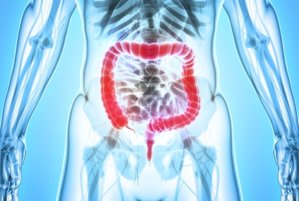 Irritable bowel syndrome – also known as IBS – is one of the most common diseases in the Western world. According to a new study from the University of Sheffield, England, many IBS patients lack
Irritable bowel syndrome – also known as IBS – is one of the most common diseases in the Western world. According to a new study from the University of Sheffield, England, many IBS patients lack 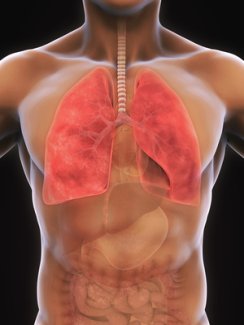 Taking a supplement of
Taking a supplement of According to a new study from Johns Hopkins University in the United States,
According to a new study from Johns Hopkins University in the United States, 
 A new British study that is published in British Journal of Nutrition shows that getting too little
A new British study that is published in British Journal of Nutrition shows that getting too little  According to Bruce Ames, an American biochemist, ageing processes are largely due to lack of nutrients. One important contributing factor is the fact that our uptake and utilization of vitamins and minerals decrease with age. In addition, a lot of different types of medicine block our ability to utilize different nutrients. As a result of this, many of our enzyme processes slow down, making our cells increasingly vulnerable and that increases our risk of disease. Nonetheless, there is a lot we can do to optimize our intake and utilization of nutrients, particularly with respect to vitamin B12, vitamin D, calcium, iron, selenium, and zinc. It is also worth taking a look at Q10 for energy turnover and melatonin for healthy sleep. Our endogenous synthesis of both compounds decreases with age.
According to Bruce Ames, an American biochemist, ageing processes are largely due to lack of nutrients. One important contributing factor is the fact that our uptake and utilization of vitamins and minerals decrease with age. In addition, a lot of different types of medicine block our ability to utilize different nutrients. As a result of this, many of our enzyme processes slow down, making our cells increasingly vulnerable and that increases our risk of disease. Nonetheless, there is a lot we can do to optimize our intake and utilization of nutrients, particularly with respect to vitamin B12, vitamin D, calcium, iron, selenium, and zinc. It is also worth taking a look at Q10 for energy turnover and melatonin for healthy sleep. Our endogenous synthesis of both compounds decreases with age. A cold beer with lunch or a glass of red wine to go with your steak may be tempting. In fact, alcohol in limited amounts can be relaxing and it provides beneficial antioxidants. However, Danes drink too much, and our excessive alcohol consumption is one of the worst threats to public health. Many alcoholics suffer from unstable blood sugar levels, which can have a rather bad impact on their willpower. In addition, the empty calories deplete the body’s levels of vitamins, minerals, and essential fatty acids, on which the nervous system, the brain, and the liver depend. This can easily turn into a vicious cycle. Therefore, having stable blood sugar and making sure to get plenty of vital nutrients is important for preventing and treating alcohol abuse.
A cold beer with lunch or a glass of red wine to go with your steak may be tempting. In fact, alcohol in limited amounts can be relaxing and it provides beneficial antioxidants. However, Danes drink too much, and our excessive alcohol consumption is one of the worst threats to public health. Many alcoholics suffer from unstable blood sugar levels, which can have a rather bad impact on their willpower. In addition, the empty calories deplete the body’s levels of vitamins, minerals, and essential fatty acids, on which the nervous system, the brain, and the liver depend. This can easily turn into a vicious cycle. Therefore, having stable blood sugar and making sure to get plenty of vital nutrients is important for preventing and treating alcohol abuse. Veganism is on the rise, and experts have different views on whether or not plant-diets are suited for children. A team of Polish scientists has now discovered that children on vegan diets have low stature and lower bone density than children who eat meat and dairy products. Children on vegan diets also are also more likely to lack amino acids,
Veganism is on the rise, and experts have different views on whether or not plant-diets are suited for children. A team of Polish scientists has now discovered that children on vegan diets have low stature and lower bone density than children who eat meat and dairy products. Children on vegan diets also are also more likely to lack amino acids,  We all need loads of energy to help us through the day feeling on top of the world. Needless to say, this requires stable blood sugar levels, daylight, exercise, and a good night’s sleep. But what are the energy-providing substances in our food? And why are Q10 and particular vitamins and minerals so essential for our energy metabolism and our physical and mental well-being? An article recently published in Medical News Today looks at this and explains that being deficient of a single nutrient can affect our metabolism, energy levels, and weight regulation. Luckily, this can be compensated for so we get the necessary energy boost.
We all need loads of energy to help us through the day feeling on top of the world. Needless to say, this requires stable blood sugar levels, daylight, exercise, and a good night’s sleep. But what are the energy-providing substances in our food? And why are Q10 and particular vitamins and minerals so essential for our energy metabolism and our physical and mental well-being? An article recently published in Medical News Today looks at this and explains that being deficient of a single nutrient can affect our metabolism, energy levels, and weight regulation. Luckily, this can be compensated for so we get the necessary energy boost.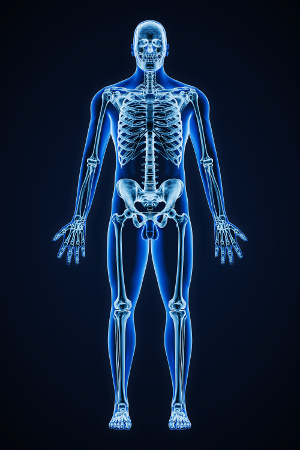
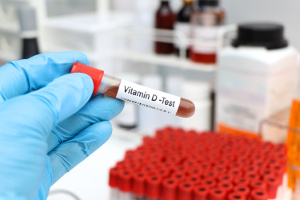 Melanoma is a type of malignant skin cancer that spreads rapidly. Being vitamin D-deficient doubles the risk of dying of the disease, according to a Spanish study that was presented at the European Academy of Dermatology and Venereology congress. It is commonly known that sunburns, which one should generally avoid, increase the risk of contracting skin cancer. But we must not forget that the summer sun is our main source of
Melanoma is a type of malignant skin cancer that spreads rapidly. Being vitamin D-deficient doubles the risk of dying of the disease, according to a Spanish study that was presented at the European Academy of Dermatology and Venereology congress. It is commonly known that sunburns, which one should generally avoid, increase the risk of contracting skin cancer. But we must not forget that the summer sun is our main source of 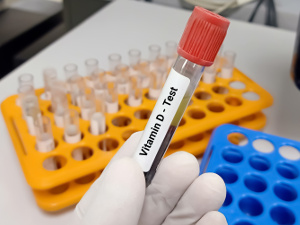 Blood levels of
Blood levels of 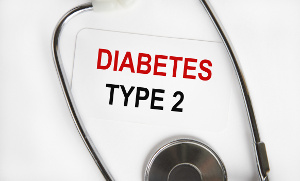 Type 2 diabetes is spreading like a bushfire. An alarmingly many people have metabolic syndrome – or pre-diabetes – which is characterized by insulin resistance, hypertension, elevated cholesterol levels and abdominal obesity (apple-shaped body). Type 2 diabetes and metabolic syndrome are associated with enormous human and socio-economic costs. In this article, we will look closer at chromium, vitamin D, magnesium, and coenzyme Q10 plus relevant diet changes to see how they can positively affect blood sugar levels, cholesterol balance, and weight control. We will also take a closer look at supplements that are able to prevent diabetic neuropathy, a disorder that can lead to amputations.
Type 2 diabetes is spreading like a bushfire. An alarmingly many people have metabolic syndrome – or pre-diabetes – which is characterized by insulin resistance, hypertension, elevated cholesterol levels and abdominal obesity (apple-shaped body). Type 2 diabetes and metabolic syndrome are associated with enormous human and socio-economic costs. In this article, we will look closer at chromium, vitamin D, magnesium, and coenzyme Q10 plus relevant diet changes to see how they can positively affect blood sugar levels, cholesterol balance, and weight control. We will also take a closer look at supplements that are able to prevent diabetic neuropathy, a disorder that can lead to amputations. Breast cancer is very common in the Western world and modern society. The disease is thought to be associated with lifestyle factors and lack of essential nutrients. For instance, it has been known for a long time that lack of vitamin D increases the risk of breast cancer. According to a new study that is published in the science journal Endocrinology, there is also a link between lack of vitamin D and the development of metastases in the lungs. Previous research also shows that the widespread deficiency of selenium, iodine, omega-3 fatty acids, and melatonin can increase the risk of breast cancer but supplements can help prevent the disease and possibly be used as add-on therapy.
Breast cancer is very common in the Western world and modern society. The disease is thought to be associated with lifestyle factors and lack of essential nutrients. For instance, it has been known for a long time that lack of vitamin D increases the risk of breast cancer. According to a new study that is published in the science journal Endocrinology, there is also a link between lack of vitamin D and the development of metastases in the lungs. Previous research also shows that the widespread deficiency of selenium, iodine, omega-3 fatty acids, and melatonin can increase the risk of breast cancer but supplements can help prevent the disease and possibly be used as add-on therapy. Allergic diseases such as asthma, hay fever, food allergies and contact dermatitis are becoming increasingly common. It makes a big difference to breastfeed for at least six months because breast milk contains various compounds that strengthen the child’s gut flora and immune defense.
Allergic diseases such as asthma, hay fever, food allergies and contact dermatitis are becoming increasingly common. It makes a big difference to breastfeed for at least six months because breast milk contains various compounds that strengthen the child’s gut flora and immune defense. 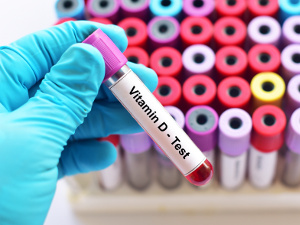
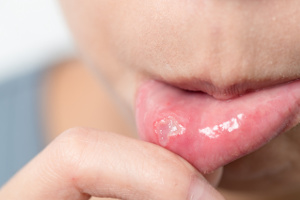 Around 25 percent of adults have had canker sores, also referred to as recurrent aphthous stomatitis (RAS). The condition is characterized by painful, superficial sores, and we don’t know all that much about what causes it or how to treat it. However, according to a meta-analysis that is published in Frontiers in Nutrition, a possible cause may be low blood levels of
Around 25 percent of adults have had canker sores, also referred to as recurrent aphthous stomatitis (RAS). The condition is characterized by painful, superficial sores, and we don’t know all that much about what causes it or how to treat it. However, according to a meta-analysis that is published in Frontiers in Nutrition, a possible cause may be low blood levels of  According to a new study, hormone-disrupting substances like bisphenol-A and phthalates can lower levels of
According to a new study, hormone-disrupting substances like bisphenol-A and phthalates can lower levels of  Children and youngsters who are exposed to lots of sunlight and have plenty of
Children and youngsters who are exposed to lots of sunlight and have plenty of 
 Although chronic inflammation is not something that you feel as such, it sets the stage for a number of symptoms and a host of different diseases including fatigue, overweight, diabetes, cardiovascular disease, rheumatism, metabolic disorders, asthma, periodontal disease, bowel infections, depression, Alzheimer’s disease, sclerosis, and cancer. Not surprisingly, people are more and more hooked on the anti-inflammatory lifestyle, and we will take a closer look at studies showing how fish oil, vitamin D, selenium, magnesium, and zinc contribute to preventing and fighting inflammation, related diseases and premature death. Any nutritional supplements must be of a proper quality that the body can absorb, and they should contain therapeutic dosages.
Although chronic inflammation is not something that you feel as such, it sets the stage for a number of symptoms and a host of different diseases including fatigue, overweight, diabetes, cardiovascular disease, rheumatism, metabolic disorders, asthma, periodontal disease, bowel infections, depression, Alzheimer’s disease, sclerosis, and cancer. Not surprisingly, people are more and more hooked on the anti-inflammatory lifestyle, and we will take a closer look at studies showing how fish oil, vitamin D, selenium, magnesium, and zinc contribute to preventing and fighting inflammation, related diseases and premature death. Any nutritional supplements must be of a proper quality that the body can absorb, and they should contain therapeutic dosages.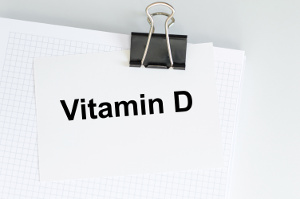
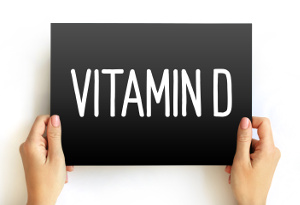
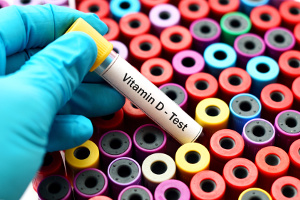 COVID-19 is highly unpredictable and be either totally harmless or life-threatening. Scientists from Oak Ridge National Laboratory in Tennessee recently made a comprehensive genetic analysis that reveals a new hypothesis – the bradykinin hypothesis – which shows why COVID-19 attacks the way it does, why symptoms vary, and why some groups of people are more vulnerable than others. The hypothesis also underpins the importance of getting enough
COVID-19 is highly unpredictable and be either totally harmless or life-threatening. Scientists from Oak Ridge National Laboratory in Tennessee recently made a comprehensive genetic analysis that reveals a new hypothesis – the bradykinin hypothesis – which shows why COVID-19 attacks the way it does, why symptoms vary, and why some groups of people are more vulnerable than others. The hypothesis also underpins the importance of getting enough 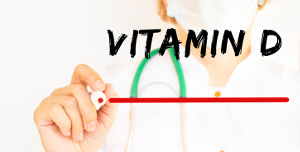 It has already been documented that the widespread problems with vitamin D deficiency increase the risk of being infected with COVID-19 and developing life-threatening complications. In a new study, a team of Turkish scientists has demonstrated that swift treatment with
It has already been documented that the widespread problems with vitamin D deficiency increase the risk of being infected with COVID-19 and developing life-threatening complications. In a new study, a team of Turkish scientists has demonstrated that swift treatment with 
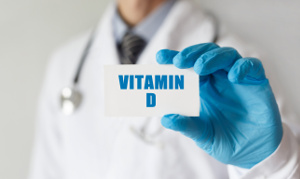 According to a retrospective study of older COVID-19 patients, lack of
According to a retrospective study of older COVID-19 patients, lack of  The summer sun is our most important source of
The summer sun is our most important source of 
 Diabetes is spreading like a bushfire across the globe, but even if governments, doctors, and health authorities have tried desperately to bend the curve, they have not succeeded so far. On the contrary. Today, diabetes is controlled with help from different medical drugs that do not address the underlying cause and actually affect or organ systems. Because of this, diabetics often have impaired quality of life and shorter lifespans than healthy individuals. What is more, diabetics have widespread vitamin B12 and vitamin D deficiencies, which are associated with diabetic neuropathy, which is a serious complication. Cholesterol-lowering drugs (statins) are also linked to reduced levels of Q10, a compound that is necessary for energy turnover, the heart, and the cardiovascular system.
Diabetes is spreading like a bushfire across the globe, but even if governments, doctors, and health authorities have tried desperately to bend the curve, they have not succeeded so far. On the contrary. Today, diabetes is controlled with help from different medical drugs that do not address the underlying cause and actually affect or organ systems. Because of this, diabetics often have impaired quality of life and shorter lifespans than healthy individuals. What is more, diabetics have widespread vitamin B12 and vitamin D deficiencies, which are associated with diabetic neuropathy, which is a serious complication. Cholesterol-lowering drugs (statins) are also linked to reduced levels of Q10, a compound that is necessary for energy turnover, the heart, and the cardiovascular system. If you are pregnant it may be wise to eat salmon. According to a new study it lowers your child's risk of developing asthma, which is a rather common ailment. But what is it in salmon that prevents asthma, and what about those who dislike the taste of fish?
If you are pregnant it may be wise to eat salmon. According to a new study it lowers your child's risk of developing asthma, which is a rather common ailment. But what is it in salmon that prevents asthma, and what about those who dislike the taste of fish? Many men suffer from erectile dysfunction, a problem that often foreshadows cardiovascular disorders. It appears that
Many men suffer from erectile dysfunction, a problem that often foreshadows cardiovascular disorders. It appears that  Approximately one billion people worldwide lack
Approximately one billion people worldwide lack 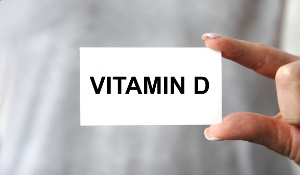 At northern latitudes, our body can only produce
At northern latitudes, our body can only produce  Having healthy-looking hair means a lot to most people. Hair that splits at the ends, hair loss, and other hair problems may be caused by stress, hormone changes, and numerous other factors. In this article, we will take a closer look at the diet and its impact on hair health, and we will look at available studies of protein, iron, zinc, selenium, silica, B vitamins, vitamin D and vitamin A. The fact is, we need plenty of these nutrients in a form that the body can absorb and utilize. On the other hand, getting too much can do more harm than good, according to an article in Dermatology Practical & Conceptual, in which the author has analyzed the available research.
Having healthy-looking hair means a lot to most people. Hair that splits at the ends, hair loss, and other hair problems may be caused by stress, hormone changes, and numerous other factors. In this article, we will take a closer look at the diet and its impact on hair health, and we will look at available studies of protein, iron, zinc, selenium, silica, B vitamins, vitamin D and vitamin A. The fact is, we need plenty of these nutrients in a form that the body can absorb and utilize. On the other hand, getting too much can do more harm than good, according to an article in Dermatology Practical & Conceptual, in which the author has analyzed the available research. Having sufficient
Having sufficient  We all hope to remain mentally alert throughout life, to be able to manage on our own, and to avoid diseases such as dementia. The diet plays a major role, and blood levels of various
We all hope to remain mentally alert throughout life, to be able to manage on our own, and to avoid diseases such as dementia. The diet plays a major role, and blood levels of various 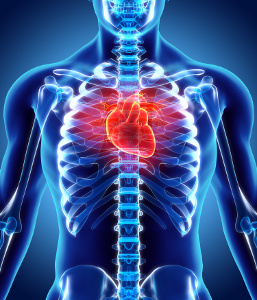 Cardiovascular disease is the leading cause of death worldwide, and our diet and lifestyle play a major role. According to an Australian study published in British Medical Journal, high-dosed
Cardiovascular disease is the leading cause of death worldwide, and our diet and lifestyle play a major role. According to an Australian study published in British Medical Journal, high-dosed
 HIV, the virus that causes AIDS, is potentially life-threatening because it attacks central cells in the immune defense. It has also been documented that HIV patients have an increased risk of lacking
HIV, the virus that causes AIDS, is potentially life-threatening because it attacks central cells in the immune defense. It has also been documented that HIV patients have an increased risk of lacking  Sales of plant-based meat, also known as meat analogue, has increased for environmental reasons and a number of other reasons. However, even if meat analogue does resemble regular animal meat it has an entirely different nutritional value. According to a study from Duke University in the United States, real meat contains 22 different nutrients and metabolites that you do not get from meat analogue. On the other hand, meat based on vegetarian sources contains 31 nutrients and metabolites that are not found in normal meat. The largest difference between the two, according to the scientists, lies in their content of amino acids, peptides, vitamins, phenols, and fatty acids. The researchers also mention that a diet based on vegetable and animal products is complementary because it contains more nutrients.
Sales of plant-based meat, also known as meat analogue, has increased for environmental reasons and a number of other reasons. However, even if meat analogue does resemble regular animal meat it has an entirely different nutritional value. According to a study from Duke University in the United States, real meat contains 22 different nutrients and metabolites that you do not get from meat analogue. On the other hand, meat based on vegetarian sources contains 31 nutrients and metabolites that are not found in normal meat. The largest difference between the two, according to the scientists, lies in their content of amino acids, peptides, vitamins, phenols, and fatty acids. The researchers also mention that a diet based on vegetable and animal products is complementary because it contains more nutrients.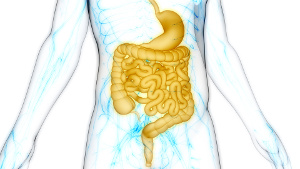
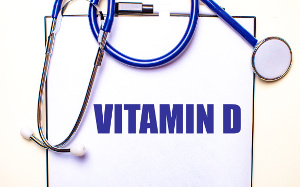 Insulin resistance is when the cells’ ability to take up glucose from the blood is impaired. It typically causes abnormal hunger and weight gain. Insulin resistance is also one of the symptoms of metabolic syndrome and type 2 diabetes. Previous studies have already demonstrated a link between vitamin D deficiency and the development of insulin resistance. The risk is even greater if you also lack magnesium, according to an American study. Here, the researchers look at interactions between
Insulin resistance is when the cells’ ability to take up glucose from the blood is impaired. It typically causes abnormal hunger and weight gain. Insulin resistance is also one of the symptoms of metabolic syndrome and type 2 diabetes. Previous studies have already demonstrated a link between vitamin D deficiency and the development of insulin resistance. The risk is even greater if you also lack magnesium, according to an American study. Here, the researchers look at interactions between 
 It is both healthy and life-extending to get plenty of summer sun, which is our main source of
It is both healthy and life-extending to get plenty of summer sun, which is our main source of 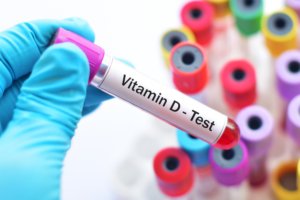 Expecting mothers should pay careful attention to getting enough vitamin D all year round, especially because vitamin D deficiencies are so commonplace, to begin with. Lack of vitamin D at birth and the first years of life is associated with an increased risk of infant hypertension, and the problem can even continue to adulthood. This was shown in a study that is published in the science journal Hypertension. The researchers advise pregnant women to have their vitamin D levels measured, and they even recommend vitamin D supplements for pregnant women and children as a way of preventing elevated blood pressure later in life.
Expecting mothers should pay careful attention to getting enough vitamin D all year round, especially because vitamin D deficiencies are so commonplace, to begin with. Lack of vitamin D at birth and the first years of life is associated with an increased risk of infant hypertension, and the problem can even continue to adulthood. This was shown in a study that is published in the science journal Hypertension. The researchers advise pregnant women to have their vitamin D levels measured, and they even recommend vitamin D supplements for pregnant women and children as a way of preventing elevated blood pressure later in life. The number of children and adolescents with ADHD has skyrocketed in the past decade, and the human and socioeconomic costs are enormous. A major cause may be the widespread problems with vitamin D deficiency, according to a study from Turku University in Finland. It does not make things any easier that sun awareness campaigns fail to give people an alternative way of getting enough
The number of children and adolescents with ADHD has skyrocketed in the past decade, and the human and socioeconomic costs are enormous. A major cause may be the widespread problems with vitamin D deficiency, according to a study from Turku University in Finland. It does not make things any easier that sun awareness campaigns fail to give people an alternative way of getting enough 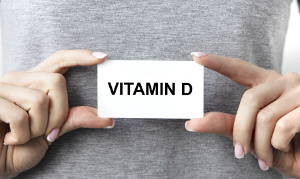
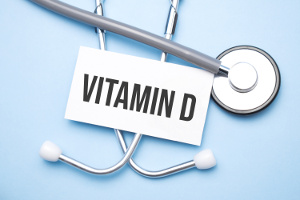 Vitamin D-deficient experimental animals are more likely to become dependent on opioids such as morphine, but their addiction decreases once their blood levels of
Vitamin D-deficient experimental animals are more likely to become dependent on opioids such as morphine, but their addiction decreases once their blood levels of 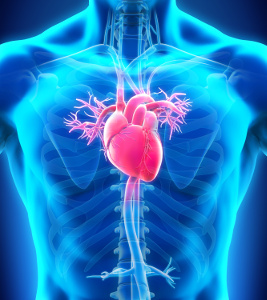 Atrial fibrillation is a rhythm disturbance in the electrical system of the heart. It is also one of the most common heart disorders and can be both harmless and potentially life-threatening. Lack of
Atrial fibrillation is a rhythm disturbance in the electrical system of the heart. It is also one of the most common heart disorders and can be both harmless and potentially life-threatening. Lack of 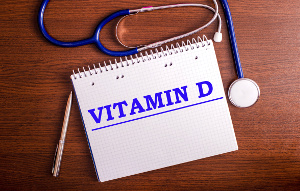
 Decades of research show that there is a link between lack of vitamin D and an increased risk of breast cancer. Vitamin D deficiencies are especially common at the northern latitudes because the sun sits too low in the sky for humans to be able to synthesize the vitamin during the winter. However, even in the southern hemisphere, many women have too little vitamin D because of spending too much time indoors, using too much suncream, or veiling themselves. Vitamin D has many anti-cancer properties, and postmenopausal women with too little vitamin D in their blood, who are diagnosed with breast cancer, have worse odds, according to a study of Brazilian women. In other words, it is not enough to treat breast cancer with surgery, chemotherapy, and radiation. You also need to optimize your blood levels of vitamin D and other nutrients, which the body needs in order to function optimally.
Decades of research show that there is a link between lack of vitamin D and an increased risk of breast cancer. Vitamin D deficiencies are especially common at the northern latitudes because the sun sits too low in the sky for humans to be able to synthesize the vitamin during the winter. However, even in the southern hemisphere, many women have too little vitamin D because of spending too much time indoors, using too much suncream, or veiling themselves. Vitamin D has many anti-cancer properties, and postmenopausal women with too little vitamin D in their blood, who are diagnosed with breast cancer, have worse odds, according to a study of Brazilian women. In other words, it is not enough to treat breast cancer with surgery, chemotherapy, and radiation. You also need to optimize your blood levels of vitamin D and other nutrients, which the body needs in order to function optimally.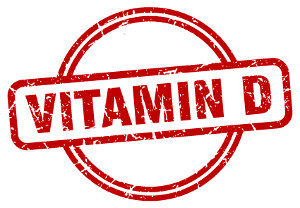 Hashimoto’s disease (Hashimoto’s thyroiditis) is an overlooked scourge that leads to hypothyroidism and is particularly widespread among women. Postpartum thyroiditis that also slows down your metabolism follows in the wake of pregnancy. Graves’ disease where the metabolism speeds up (hyperthyroidism) is less common. These three thyroid disorders belong to the group of autoimmune disorders where the immune defense attacks the body’s tissues, and it appears that lack of
Hashimoto’s disease (Hashimoto’s thyroiditis) is an overlooked scourge that leads to hypothyroidism and is particularly widespread among women. Postpartum thyroiditis that also slows down your metabolism follows in the wake of pregnancy. Graves’ disease where the metabolism speeds up (hyperthyroidism) is less common. These three thyroid disorders belong to the group of autoimmune disorders where the immune defense attacks the body’s tissues, and it appears that lack of  A large Irish study has shown for the first time ever that people from 50 years of age and older, who are vitamin D-deficient, are more likely to develop depression.
A large Irish study has shown for the first time ever that people from 50 years of age and older, who are vitamin D-deficient, are more likely to develop depression.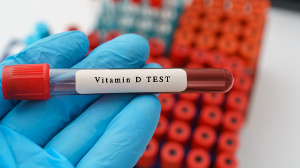 Type 2 diabetes is currently treated with a number of different medical drugs. However, the medicine is not able to deal with the underlying causes of the disease that affects most organ systems. A Chinese study has demonstrated that
Type 2 diabetes is currently treated with a number of different medical drugs. However, the medicine is not able to deal with the underlying causes of the disease that affects most organ systems. A Chinese study has demonstrated that 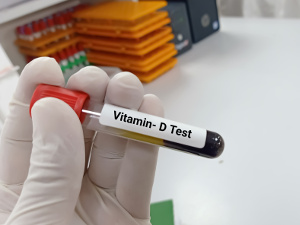 PCOS or polycystic ovary syndrome is a hormone imbalance and the most common cause of involuntary female infertility. The disease brings on symptoms such as tiredness, sugar cravings, overweight, hirsutism, and an increased risk of type 2 diabetes. It turns out that women with PCOS also have lower levels of
PCOS or polycystic ovary syndrome is a hormone imbalance and the most common cause of involuntary female infertility. The disease brings on symptoms such as tiredness, sugar cravings, overweight, hirsutism, and an increased risk of type 2 diabetes. It turns out that women with PCOS also have lower levels of  A large Israeli population study of over 4.6 million people shows that lack of sunshine and
A large Israeli population study of over 4.6 million people shows that lack of sunshine and  Despite official recommendations to give infants a daily vitamin D supplement, nearly 50% of parents forget to follow this advice according to a large new Danish study. Not only do the children risk weak bones, it also increases their risk of infections and autism, other studies suggest.
Despite official recommendations to give infants a daily vitamin D supplement, nearly 50% of parents forget to follow this advice according to a large new Danish study. Not only do the children risk weak bones, it also increases their risk of infections and autism, other studies suggest. During pregnancy, the unborn child is totally dependent on the mother’s vitamin D status.
During pregnancy, the unborn child is totally dependent on the mother’s vitamin D status. 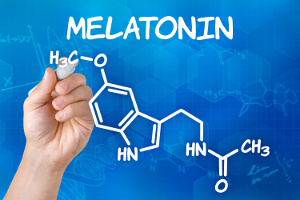 In the summertime, we synthesize
In the summertime, we synthesize 

 The winter period is the time of year where we typically lack
The winter period is the time of year where we typically lack  For decades, we’ve been told how dangerous the sun is and how important it is to protect ourselves. Now, a large British population study of more than half a million participants reveals that getting more sun exposure – even using tanning beds – is linked to fewer deaths from cardiovascular disease, cancer, and other things. The explanation lies in the UVB rays, which are the best way to get essential
For decades, we’ve been told how dangerous the sun is and how important it is to protect ourselves. Now, a large British population study of more than half a million participants reveals that getting more sun exposure – even using tanning beds – is linked to fewer deaths from cardiovascular disease, cancer, and other things. The explanation lies in the UVB rays, which are the best way to get essential 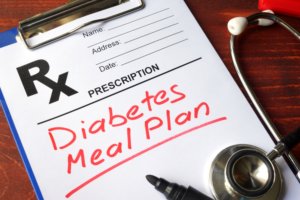 Diabetes is spreading with epidemic proportions, and an alarmingly high number of people are affected by metabolic syndrome, an early stage of diabetes that causes insulin resistance, elevated cholesterol, hypertension, and enlarged waist circumference. Ever since the 1970s, diabetics have been advised to stick with a low-fat diet consisting of bread, potatoes, and other carbohydrate sources. However, a new Danish study reveals that it is best to cut back on your carbohydrate intake. The new message to diabetics supports research from other parts of the world. Diabetics and people with sensitive blood sugar should focus on eating a diet with fewer carbohydrates, more protein, and more healthy fats. They should also make sure to get enough chromium, vitamin D, and magnesium, all of which are nutrients that support the body’s blood sugar levels. Furthermore, vitamin B12 and Q10 are important for those, who take diabetes medication and cholesterol-lowering drugs (statins).
Diabetes is spreading with epidemic proportions, and an alarmingly high number of people are affected by metabolic syndrome, an early stage of diabetes that causes insulin resistance, elevated cholesterol, hypertension, and enlarged waist circumference. Ever since the 1970s, diabetics have been advised to stick with a low-fat diet consisting of bread, potatoes, and other carbohydrate sources. However, a new Danish study reveals that it is best to cut back on your carbohydrate intake. The new message to diabetics supports research from other parts of the world. Diabetics and people with sensitive blood sugar should focus on eating a diet with fewer carbohydrates, more protein, and more healthy fats. They should also make sure to get enough chromium, vitamin D, and magnesium, all of which are nutrients that support the body’s blood sugar levels. Furthermore, vitamin B12 and Q10 are important for those, who take diabetes medication and cholesterol-lowering drugs (statins).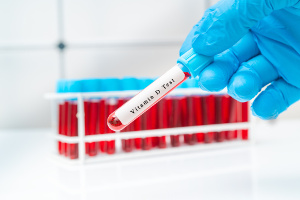

 People, who eat nutrient-depleted diets, have an increased risk of contracting cancer, according to a French study that is published in PLoS Medicine. The scientists therefore recommend labeling food to help consumers make healthier choices. In the Nordic countries, we already have the “Keyhole label” on certain healthy food items, but even if you follow the official dietary guidelines, it may be difficult to get enough vitamin D and selenium, both of which are nutrients with several anti-cancer mechanisms.
People, who eat nutrient-depleted diets, have an increased risk of contracting cancer, according to a French study that is published in PLoS Medicine. The scientists therefore recommend labeling food to help consumers make healthier choices. In the Nordic countries, we already have the “Keyhole label” on certain healthy food items, but even if you follow the official dietary guidelines, it may be difficult to get enough vitamin D and selenium, both of which are nutrients with several anti-cancer mechanisms. Older people can easily become deficient of vitamins and minerals, which can weaken their immune system and make them more prone to infections and prolonged periods with disease. On the other hand, older people who take a multivitamin and mineral supplement with zinc and large quantities of vitamin C experience fewer days with disease and have less severe symptoms, according to a placebo-controlled study from Oregon State University. But many multivitamin supplements do not contain enough vitamin D and it is very important for older people to get enough of this nutrient.
Older people can easily become deficient of vitamins and minerals, which can weaken their immune system and make them more prone to infections and prolonged periods with disease. On the other hand, older people who take a multivitamin and mineral supplement with zinc and large quantities of vitamin C experience fewer days with disease and have less severe symptoms, according to a placebo-controlled study from Oregon State University. But many multivitamin supplements do not contain enough vitamin D and it is very important for older people to get enough of this nutrient.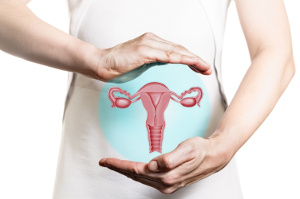 Ovarian cancer is one of the deadliest cancer forms because it metastasizes in a very special way. It appears, however, that
Ovarian cancer is one of the deadliest cancer forms because it metastasizes in a very special way. It appears, however, that 



 One in nine Danish women gets breast cancer, and the situation is not improving, on the contrary. One of the reasons why breast cancer is so widespread is that so many women lack
One in nine Danish women gets breast cancer, and the situation is not improving, on the contrary. One of the reasons why breast cancer is so widespread is that so many women lack 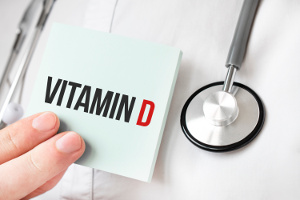
 According to WHO, sepsis is the third-most common cause of death, following cardiovascular disease and death. Sepsis is a result of the immune defense overreacting to an infection in the bloodstream. According to a new Slovakian study published in Bratislava Medical Journal, if you start supplementing with
According to WHO, sepsis is the third-most common cause of death, following cardiovascular disease and death. Sepsis is a result of the immune defense overreacting to an infection in the bloodstream. According to a new Slovakian study published in Bratislava Medical Journal, if you start supplementing with 
 An only six-month-old baby died of heart failure and the following complications. The tragedy was a result of severe
An only six-month-old baby died of heart failure and the following complications. The tragedy was a result of severe 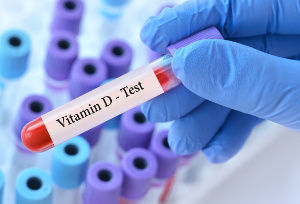
 It is common knowledge that too much sun exposure can cause skin cancer. On the other hand, lack of sunlight is also a problem. If you expose yourself to plenty of sunlight during your childhood years it lowers your risk of developing multiple sclerosis later in life, according to a study from University of California and Australian National University. The reason why sunlight protects against multiple sclerosis and a number of other illnesses is that the sun is our most important source of
It is common knowledge that too much sun exposure can cause skin cancer. On the other hand, lack of sunlight is also a problem. If you expose yourself to plenty of sunlight during your childhood years it lowers your risk of developing multiple sclerosis later in life, according to a study from University of California and Australian National University. The reason why sunlight protects against multiple sclerosis and a number of other illnesses is that the sun is our most important source of 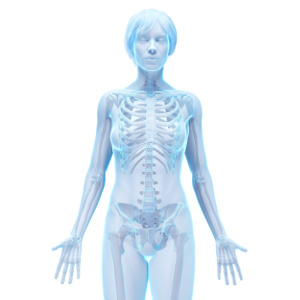
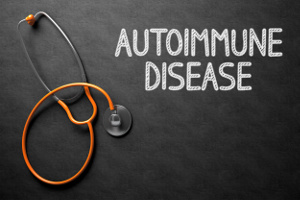 Autoimmune diseases occur in the wake of chronic inflammation and are the result of the immune defense erroneously attacking the body’s own tissues. Rheumatoid arthritis, psoriasis, sclerosis, and Hashimoto’s disease (that causes hypothyroidism) are all examples of autoimmune diseases that primarily affect women and older people. The diet plays a significant role and according to a study published in The British Medical Journal, supplements of vitamin D and fish oil taken for extended periods can lower the rate of autoimmune diseases. This is useful knowledge because these diseases are on the rise and the medicine that is used to treat them often comes with serious side effects.
Autoimmune diseases occur in the wake of chronic inflammation and are the result of the immune defense erroneously attacking the body’s own tissues. Rheumatoid arthritis, psoriasis, sclerosis, and Hashimoto’s disease (that causes hypothyroidism) are all examples of autoimmune diseases that primarily affect women and older people. The diet plays a significant role and according to a study published in The British Medical Journal, supplements of vitamin D and fish oil taken for extended periods can lower the rate of autoimmune diseases. This is useful knowledge because these diseases are on the rise and the medicine that is used to treat them often comes with serious side effects. There is worldwide focus on finding better ways to prevent and treat COVID-19 because of the limited effect of vaccines. It is important to understand why the infections are harmless in most cases and why only a small number of people are affected by ARDS (acute respiratory distress syndrome), which is complicated and involves hyperinflammation. What represents the real problem here and what makes these infections life-threatening is a derailed and overactive immune defense. Multiple studies have already demonstrated that lack of vitamin D increases the risk of being infected with COVID-19 ending up in intensive care, and the studies also show that vitamin D supplements have a therapeutic potential. In a new review article that is published in Clinical and Molecular Allergy, researchers look closer at the synergy between vitamin D, magnesium, and zinc in relation to their ability to regulate the immune system and as potential therapeutic agents. It is also vital to have enough selenium, a nutrient that many people lack.
There is worldwide focus on finding better ways to prevent and treat COVID-19 because of the limited effect of vaccines. It is important to understand why the infections are harmless in most cases and why only a small number of people are affected by ARDS (acute respiratory distress syndrome), which is complicated and involves hyperinflammation. What represents the real problem here and what makes these infections life-threatening is a derailed and overactive immune defense. Multiple studies have already demonstrated that lack of vitamin D increases the risk of being infected with COVID-19 ending up in intensive care, and the studies also show that vitamin D supplements have a therapeutic potential. In a new review article that is published in Clinical and Molecular Allergy, researchers look closer at the synergy between vitamin D, magnesium, and zinc in relation to their ability to regulate the immune system and as potential therapeutic agents. It is also vital to have enough selenium, a nutrient that many people lack. Considerably fewer cases of melanoma are found among people who take
Considerably fewer cases of melanoma are found among people who take 
 There is a link between low blood levels of
There is a link between low blood levels of 
 We are constantly being warned about sun exposure and skin cancer. Still, it is important that we get plenty of
We are constantly being warned about sun exposure and skin cancer. Still, it is important that we get plenty of 
 Type 2 diabetes is spreading like a bushfire, and most people will be affected by periodontal disease at some point in their life. Now, science has discovered that lack of
Type 2 diabetes is spreading like a bushfire, and most people will be affected by periodontal disease at some point in their life. Now, science has discovered that lack of 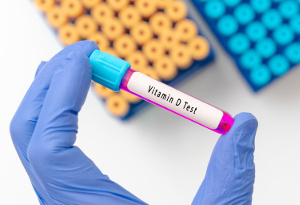 Lack of
Lack of 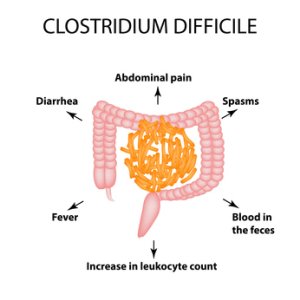 Clostridium difficile is a bacterium that causes diarrhea and intestinal infection. The infection may even be life-threatening. A new American study that is published in PLoS Pathogens shows that this bacterium can only thrive with an overload of calcium in the intestinal system. Such a calcium excess can be caused by overconsumption of
Clostridium difficile is a bacterium that causes diarrhea and intestinal infection. The infection may even be life-threatening. A new American study that is published in PLoS Pathogens shows that this bacterium can only thrive with an overload of calcium in the intestinal system. Such a calcium excess can be caused by overconsumption of  Sun awareness campaigns have scared people away from sun exposure because of the risk of skin cancer. Still, it is essential to get enough
Sun awareness campaigns have scared people away from sun exposure because of the risk of skin cancer. Still, it is essential to get enough  Everyone is talking about the climate, and meat has lost popularity for a number of reasons. But let us keep our heads clear on the facts. There is a big difference between CO2 emissions, animal welfare, and the quality or quantity of meat on one hand and the nutritional aspects of meat on the other hand. Humans have been eating meat (including fish) for around two million years, and animal food sources have contributed to our large brains and development in general. Nonetheless, more and more people choose to become vegetarians, and the trend is especially popular among women. This gives rise for concern, as lack of protein, vitamin D, vitamin B12, iodine, selenium, iron, zinc and omega-3 fatty acids not only impairs fertility but even increases the risk of metabolic disorders, serious growth disturbances in children and a lot more. Some of these symptoms are insidious and therefore difficult to link to the diet.
Everyone is talking about the climate, and meat has lost popularity for a number of reasons. But let us keep our heads clear on the facts. There is a big difference between CO2 emissions, animal welfare, and the quality or quantity of meat on one hand and the nutritional aspects of meat on the other hand. Humans have been eating meat (including fish) for around two million years, and animal food sources have contributed to our large brains and development in general. Nonetheless, more and more people choose to become vegetarians, and the trend is especially popular among women. This gives rise for concern, as lack of protein, vitamin D, vitamin B12, iodine, selenium, iron, zinc and omega-3 fatty acids not only impairs fertility but even increases the risk of metabolic disorders, serious growth disturbances in children and a lot more. Some of these symptoms are insidious and therefore difficult to link to the diet. "After about one week of taking the Q10 supplement I could feel a huge difference," says 23-year old Alan Piccini, who has been suffering from extreme fatigue and muscle aches ever since he was a child.
"After about one week of taking the Q10 supplement I could feel a huge difference," says 23-year old Alan Piccini, who has been suffering from extreme fatigue and muscle aches ever since he was a child. “Taking capsules with co-enzyme Q10 has freed me of the severe side effects of my cholesterol lowering medicine,” Mrs Franken explains.
“Taking capsules with co-enzyme Q10 has freed me of the severe side effects of my cholesterol lowering medicine,” Mrs Franken explains.